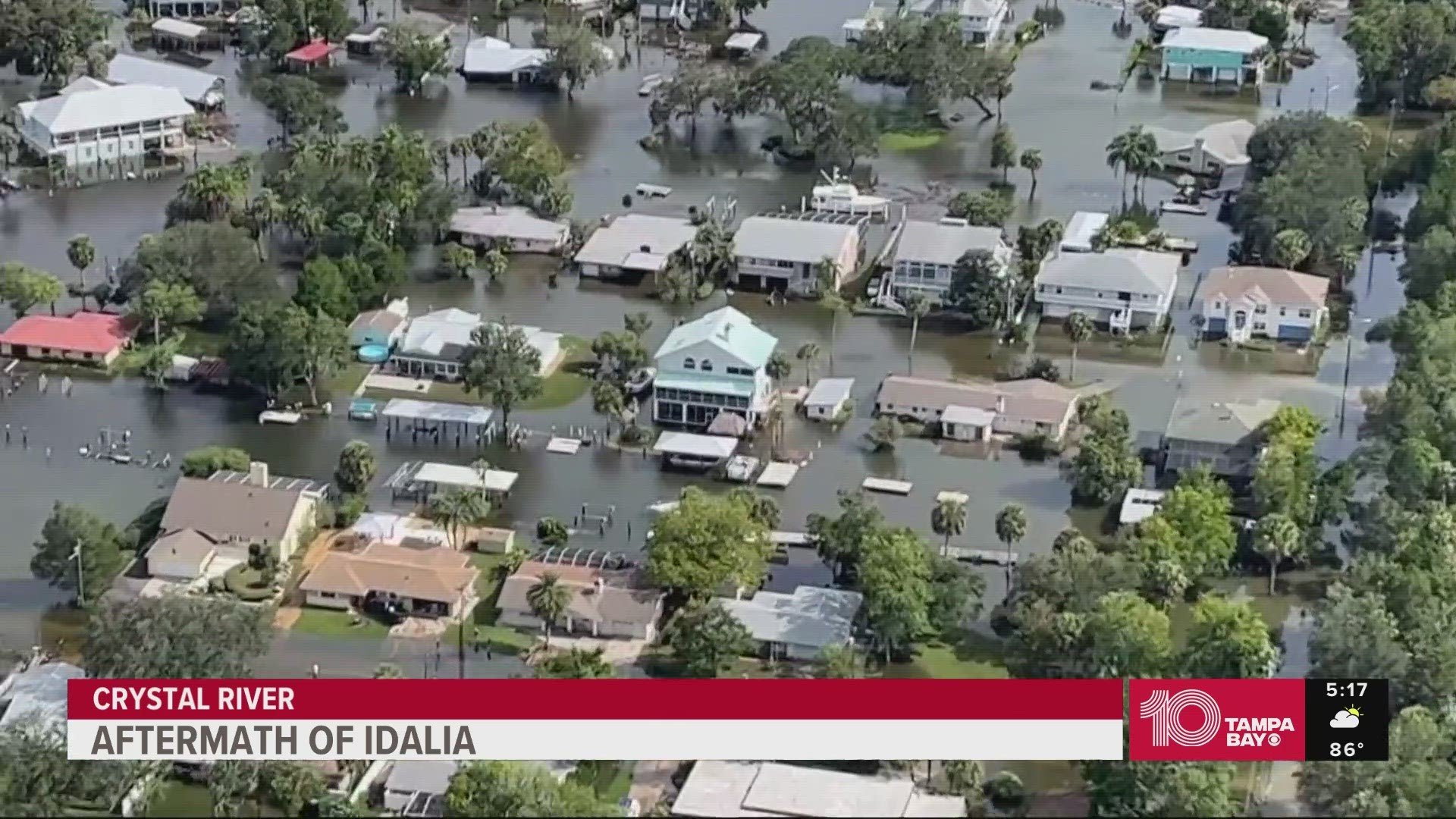TAMPA, Fla. — Assessing the damage to your home and property can be a daunting and sometimes overwhelming task after surviving a natural disaster, which is why insurance experts are already offering advice to Florida residents affected by Hurricane Idalia.
According to the American Automobile Association (AAA), a significant number of people will file insurance claims to recover some of what they've lost after an extreme weather event like Idalia.
If your home or vehicle was impacted by wind and/or flood damage as a result of Idalia, the company says to connect directly with your insurance provider as soon as possible to file your claims.
For vehicles, flood damage is included in comprehensive auto insurance, which Florida does not require for its drivers, so some may not be covered. If you find your vehicle's been flooded, AAA offers this advice before entering your claim:
- Do not attempt to start a vehicle if the water level rose above the door opening and the interior of the car is wet. Doing so could cause major problems if flood water has contaminated the engine oil or other vehicle fluids.
- Take photos from the exterior of the vehicle. Do not open the doors if the water levels are still high.
- Once the waters have receded, take photos of the interior.
- Do not drive down flooded streets. You may not realize how deep the water is or what’s lurking underneath.
- If you drive through a flooded area, with water above your doors and your engine cuts off, do not try to restart it. Doing so could flood the engine causing severe damage. Instead, evacuate the vehicle through the window and go to a safe location and call for help.
As far as flood damage to residential property, homeowners can tap into their flood insurance policy provided by the National Flood Insurance Program, which is managed by the Federal Emergency Management Agency (FEMA), or other private providers. If you don't have a flood insurance policy, homeowners can apply for federal disaster assistance from the U.S. Small Business Administration.
If your home sustained damages due to flooding, AAA offers this advice:
- Document damage as soon as possible. Take photographs and videos for your insurance claim and personal records. The more documentation you have, the easier it is to file your claim.
- Prevent further damage. Do only what’s necessary to prevent further damage, such as covering broken windows with plastic or getting a professional to cover the roof with tarps to keep rain out.
- Document expenses and keep receipts for any preliminary repairs, displacement or other out-of-pocket expenses related to the claim, which can count toward your deductible. This could include tree removal, tarps, ice chests for food, overnight stay in a hotel, etc.
- Contact your insurance company immediately to begin the claims process.
AAA said homeowners who survive an event like Idalia could be especially vulnerable during this time, leaving them susceptible to contracting frauds and scams. To avoid deceptive contractors, AAA strongly recommends checking their credentials; shopping around with at least three companies who can provide you with itemized, written estimates; and allowing your insurance company to come and assess the damage first. Additionally, AAA offers these contractor red flags to watch for:
- Contractor shows up unsolicited.
- Points out damage you have not previously noticed.
- Asks for full payment up front and/or in cash only.
- Promises services at no charge to you or offers to waive your insurance deductible.
- Pressures you to encourage your family, friends, or neighbors to hire them for services.
- Offers you a discount for letting them use leftover materials from a previous job.
Contractor licenses can be verified by visiting the Florida Department of Business and Professional Regulation's website, or you can check for prior complaints registered with the Better Business Bureau.
For homeowners dealing with catastrophic damage and inhospitable conditions, AAA says loss-of-use coverage is a standard policy that can help families pay for a place to stay while their home is being repaired. For anyone seeking temporary housing, FEMA has more information here.

